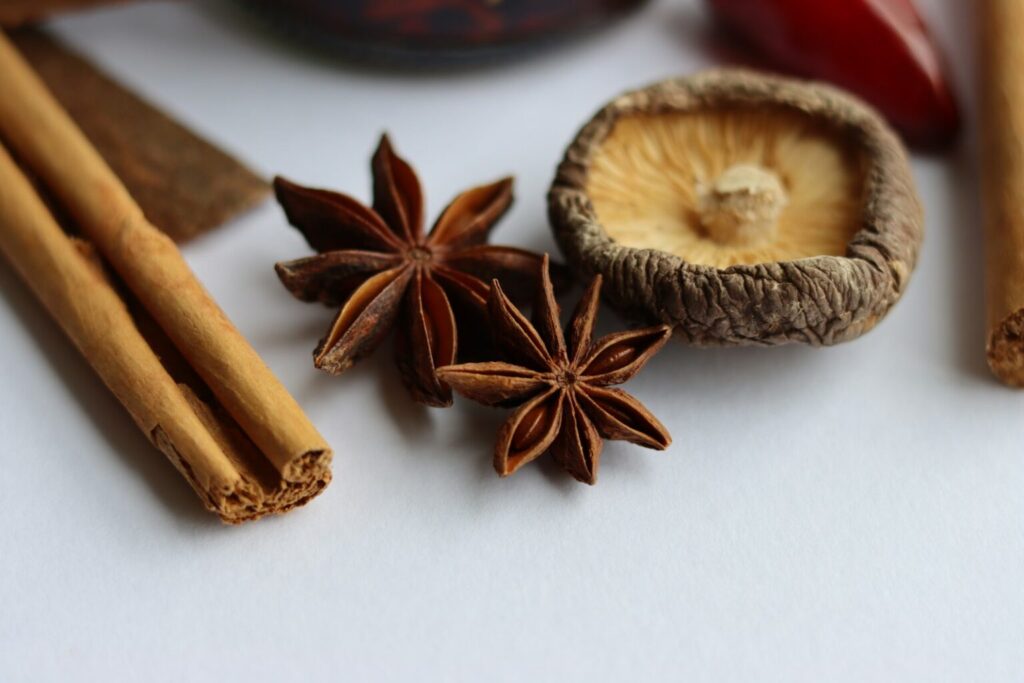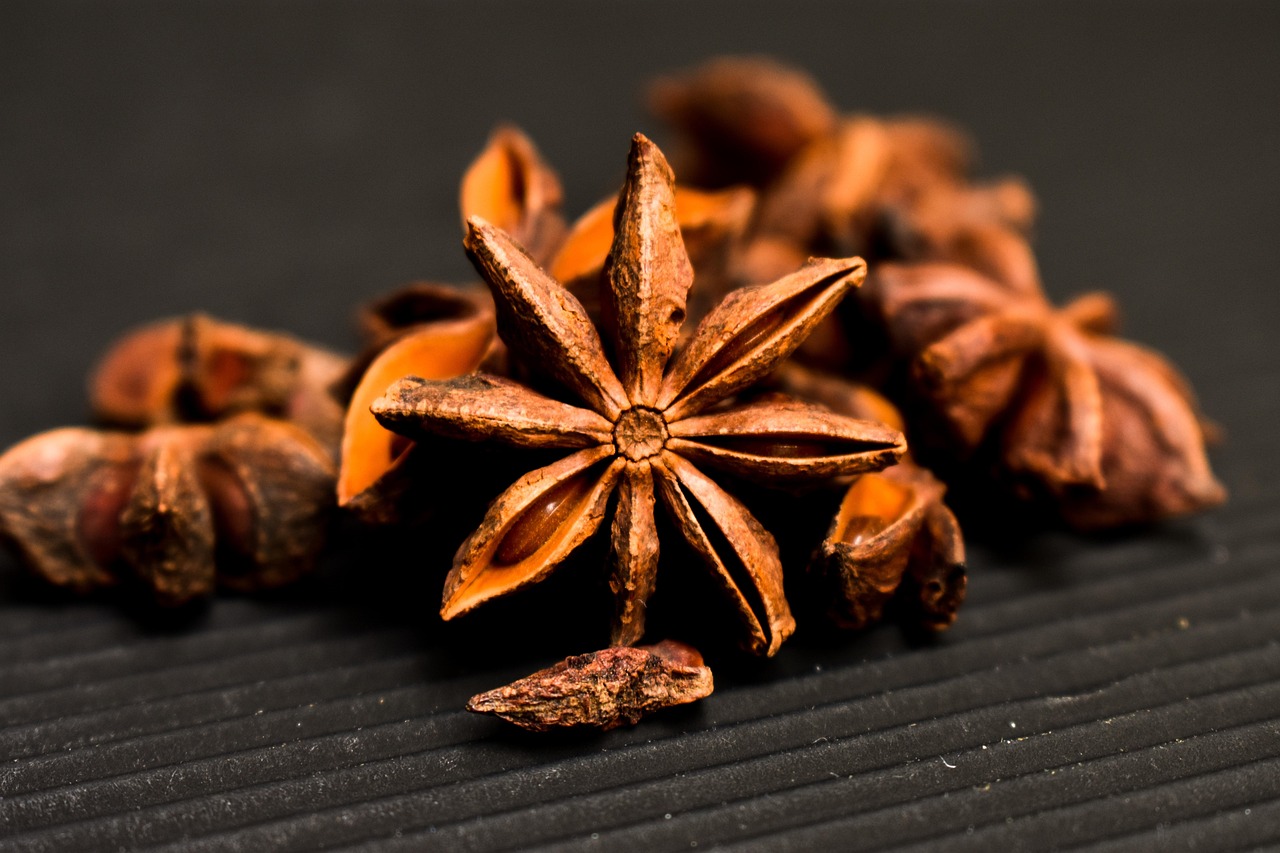Anise (Pimpinella anisum), with its distinct licorice-like flavor, has been used for centuries in cooking, traditional medicine, and even spiritual practices. This aromatic herb, native to the Mediterranean and Southwest Asia, is known for its tiny seeds, which pack a punch of flavor and a wealth of health benefits. From aiding digestion to supporting respiratory health, anise is a versatile and powerful addition to your wellness toolkit.
In this blog post, we’ll explore everything you need to know about anise, its health benefits, and how to incorporate it into your life.
What Is Anise?
Anise is a flowering plant that belongs to the Apiaceae family, which also includes carrots, celery, and parsley. The seeds of the anise plant are the most commonly used part, prized for their sweet, aromatic flavor and medicinal properties. Anise is often confused with star anise (Illicium verum), a different plant with a similar flavor profile, but the two are not botanically related.
Anise seeds are used in a variety of culinary applications, from baking and desserts to savory dishes and beverages. They are also a key ingredient in many traditional remedies and herbal teas.
Nutritional Profile of Anise
Anise seeds are rich in essential nutrients and bioactive compounds. Here’s a snapshot of what they offer:
- Fiber: Supports digestive health.
- Iron: Essential for red blood cell production.
- Calcium: Promotes bone health.
- Magnesium: Supports muscle and nerve function.
- Antioxidants: Including flavonoids and polyphenols, which protect cells from damage.
- Essential Oils: Anethole, the primary compound in anise, is responsible for its flavor and many of its health benefits.
Health Benefits of Anise
- Aids Digestion
Anise has been used for centuries to relieve digestive issues like bloating, gas, and indigestion. Its carminative properties help relax the digestive tract and reduce discomfort. - Relieves Cough and Respiratory Issues
Anise is a natural expectorant, meaning it helps loosen mucus and phlegm, making it easier to expel. It’s often used in cough syrups and teas to soothe sore throats and ease respiratory conditions like bronchitis and asthma. - Rich in Antioxidants
The antioxidants in anise, including flavonoids and polyphenols, help neutralize free radicals and reduce oxidative stress, lowering the risk of chronic diseases. - Supports Hormonal Balance
Anise contains compounds that mimic estrogen, making it beneficial for women experiencing hormonal imbalances, menstrual cramps, or menopausal symptoms. - May Improve Sleep Quality
Anise has mild sedative properties that can help promote relaxation and improve sleep quality. Drinking anise tea before bed is a popular remedy for insomnia. - Supports Immune Function
The antimicrobial and antifungal properties of anise help protect against infections and boost overall immunity. - May Reduce Inflammation
Anise has anti-inflammatory properties that can help alleviate conditions like arthritis and muscle pain. - Promotes Oral Health
Anise has been used traditionally to freshen breath and support oral health. Its antimicrobial properties may also help prevent cavities and gum disease. - May Aid in Weight Loss
Anise is low in calories and can help suppress appetite, making it a useful addition to a weight-loss diet. - Supports Lactation
Anise has been used for centuries to promote milk production in breastfeeding mothers. Its estrogen-like compounds may help stimulate lactation.
How to Use Anise
Anise can be used in a variety of ways, depending on your needs:
- Tea: Steep 1 teaspoon of crushed anise seeds in hot water for 5-10 minutes. Add honey or lemon for extra flavor.
- Cooking: Use whole or ground anise seeds in baking, soups, stews, and curries.
- Essential Oil: Dilute anise essential oil with a carrier oil and use it for aromatherapy or massage.
- Chewing: Chewing a few anise seeds after meals can freshen breath and aid digestion.
Potential Side Effects and Precautions
While anise is generally safe for most people, there are a few considerations to keep in mind:
- Allergies: Some individuals may be allergic to anise or other plants in the Apiaceae family.
- Pregnancy and Breastfeeding: While anise is traditionally used to support lactation, pregnant women should consult a healthcare provider before using it in large amounts.
- Medication Interactions: Anise may interact with certain medications, including hormone therapies and blood thinners. Consult your doctor if you’re on medication.
- Overconsumption: Excessive intake of anise can lead to nausea, vomiting, or other digestive issues.

Anise is a sweet and spicy herb with a long history of culinary and medicinal use. From aiding digestion and supporting respiratory health to promoting hormonal balance and reducing inflammation, this versatile herb offers a wide range of health benefits. Whether you enjoy it in tea, cooking, or as an essential oil, anise is a simple and natural way to enhance your well-being.
So, the next time you’re looking for a flavorful and health-boosting ingredient, reach for anise – your body and taste buds will thank you!
Have you tried anise?
Share your favorite ways to use it in the comments below! 🌿

